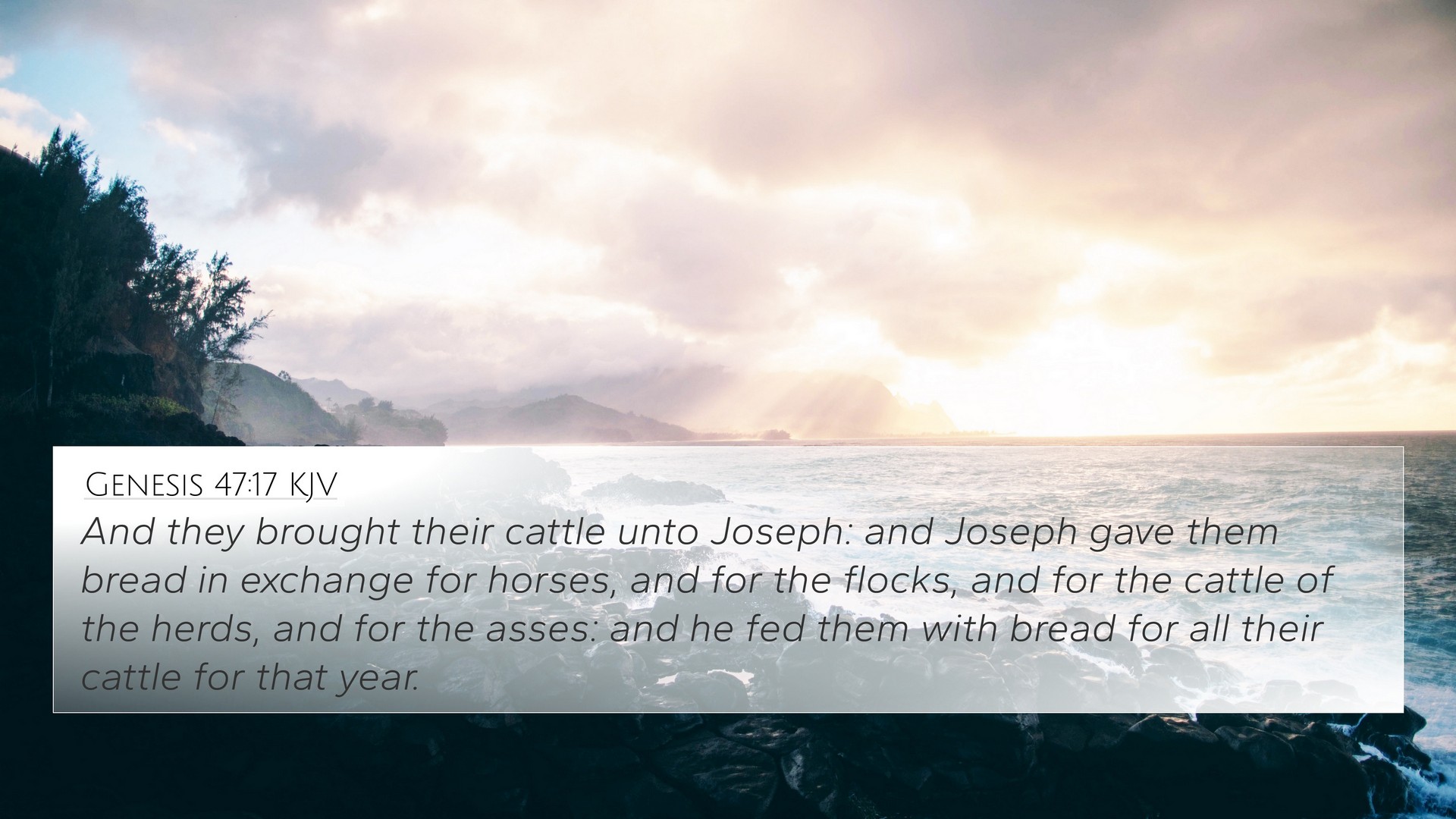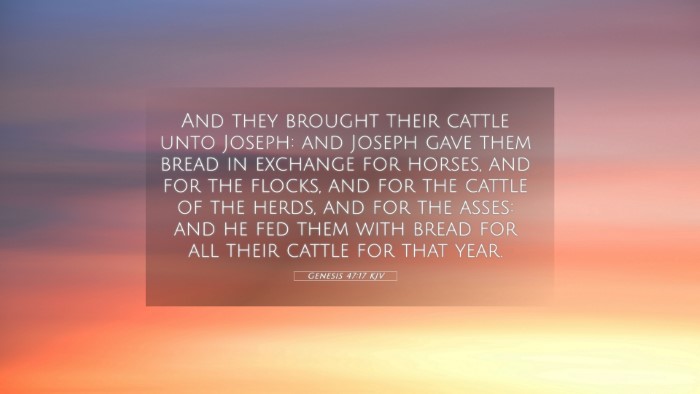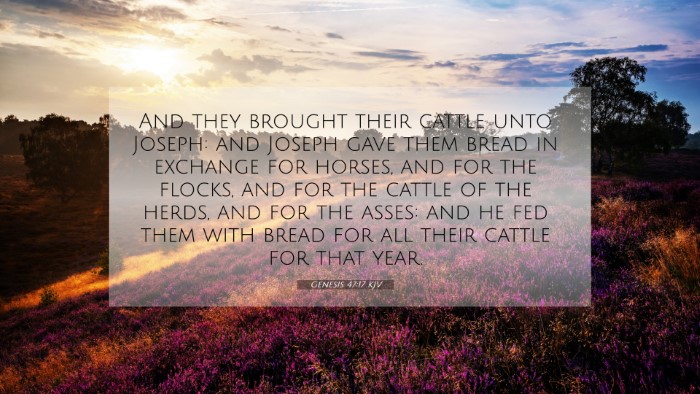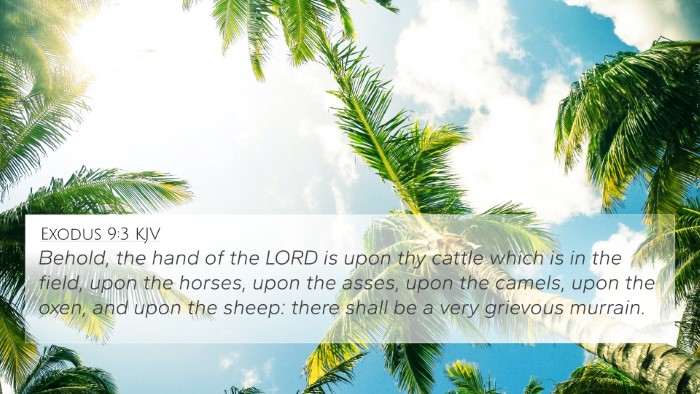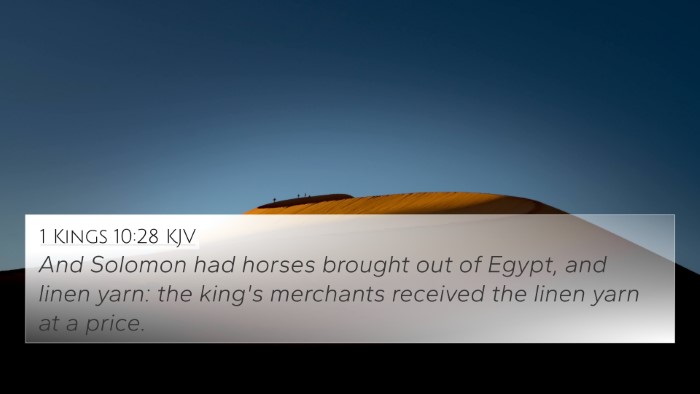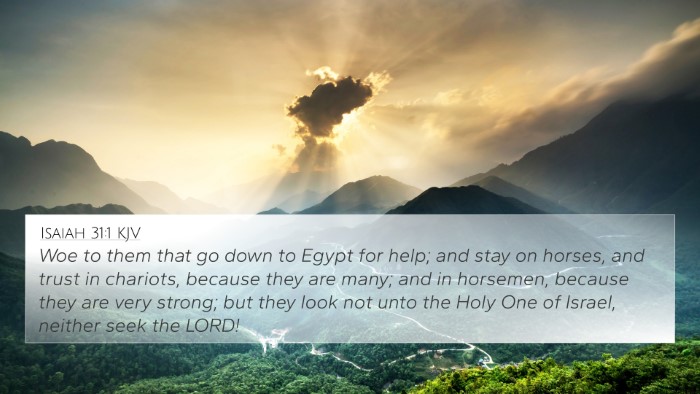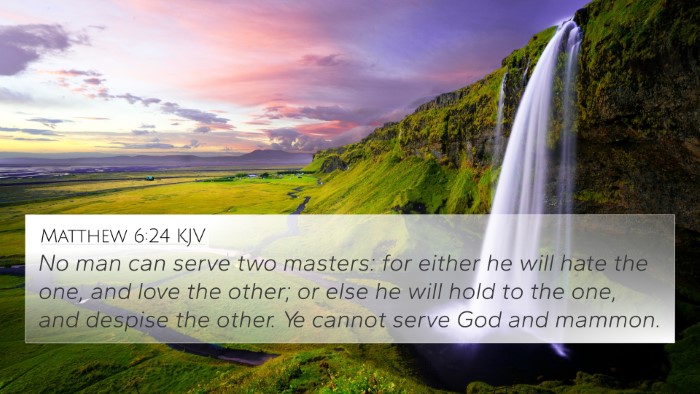Understanding Genesis 47:17
Genesis 47:17 presents a pivotal moment within the narrative of Joseph and the lives of the people of Egypt during a severe famine. The verse reads:
"And they brought their cattle unto Joseph; and Joseph gave them bread in exchange for horses, and for the flocks, and for the cattle of the herds, and for the asses: and he fed them with bread for all their cattle for that year."
Verse Analysis and Meaning
In Genesis 47:17, Joseph acts as the agent of Pharaoh, using his power wisely to save both the Egyptians and himself. The verse illustrates the economic system Joseph implemented in Egypt and highlights themes of survival, providence, and divine wisdom during crisis.
Through this exchange, a connection is made where sustenance (bread) is provided in return for livestock, exemplifying the desperate state of the people and their reliance on Joseph’s foresight. This illustrates not only the immediacy of their need but also Joseph's role as a provider which echoes the broader biblical theme of God’s provision for His people.
Thematic Links and Cross-References
Understanding Genesis 47:17 further enriches with comparisons to other scriptures that affirm and reflect its themes:
- Genesis 41:30-31: These verses describe the severe famine that compelled the Egyptians to seek help, tying Joseph's actions directly to God's revelation of the upcoming scarcity.
- Exodus 16:4: This passage discusses God's provision of manna in the wilderness, establishing God's continuous role as provider.
- Psalm 107:9: Highlights that God satisfies the hungry soul, paralleling Joseph's fulfillment of physical needs during the famine.
- Matthew 14:16-21: Jesus feeding the five thousand shows a similar act of miraculous provision, connecting the Old Testament and New Testament themes.
- Luke 12:24: Here, Jesus points to the provision of God for even the birds of the air, reinforcing God's care and provision for all His creation.
- 1 Kings 17:8-16: The story of Elijah and the widow of Zarephath exhibits God’s providence in times of scarcity.
- Philippians 4:19: Paul's assurance that God will supply all needs echoes the message found in Genesis about divine provision through human agents.
Comparative Insights from Commentaries
The insights from public domain commentaries provide deeper understanding:
Matthew Henry’s Commentary
Henry emphasizes that Joseph's actions reflect the wisdom of stewardship and the importance of managing resources wisely. The famine forces the Egyptians into an uncomfortable position, yet through Joseph, God's mercy prevails.
Albert Barnes’ Notes on the Bible
Barnes notes that this verse reflects Joseph's shrewdness and also serves as a reminder of God’s providence, illustrating how He uses individuals to fulfill His divine plans even in dire circumstances. It also foreshadows the Israelites' own journey through famine when they later return to Egypt.
Adam Clarke's Commentary
Clarke highlights Joseph's role not just as a mere provider but as a savior figure for the Egyptians, linking him to Christ in a typological sense. The act of providing sustenance through bread represents spiritual nourishment that echoes through subsequent scriptures.
Conclusion
The complexities within Genesis 47:17 open the door to numerous connections and theological reflections, demonstrating the intricate tapestry woven throughout the Scriptures concerning God’s provision, human stewardship, and faithfulness during crisis. Understanding these connections can deepen one's study and appreciation for the passages that relate to one another.
Additional Bible Cross-References
- Genesis 45:7: Joseph's earlier revelation of his plans for his family during the famine.
- Proverbs 21:20: Wisdom in storing provisions.
- Deuteronomy 8:3: Spiritual lessons learned from physical sustenance.
By engaging with Genesis 47:17 and coupling it with other related scriptures, one can glean profound insights and encourage a deeper understanding of God's providential care manifested throughout the biblical narrative.
